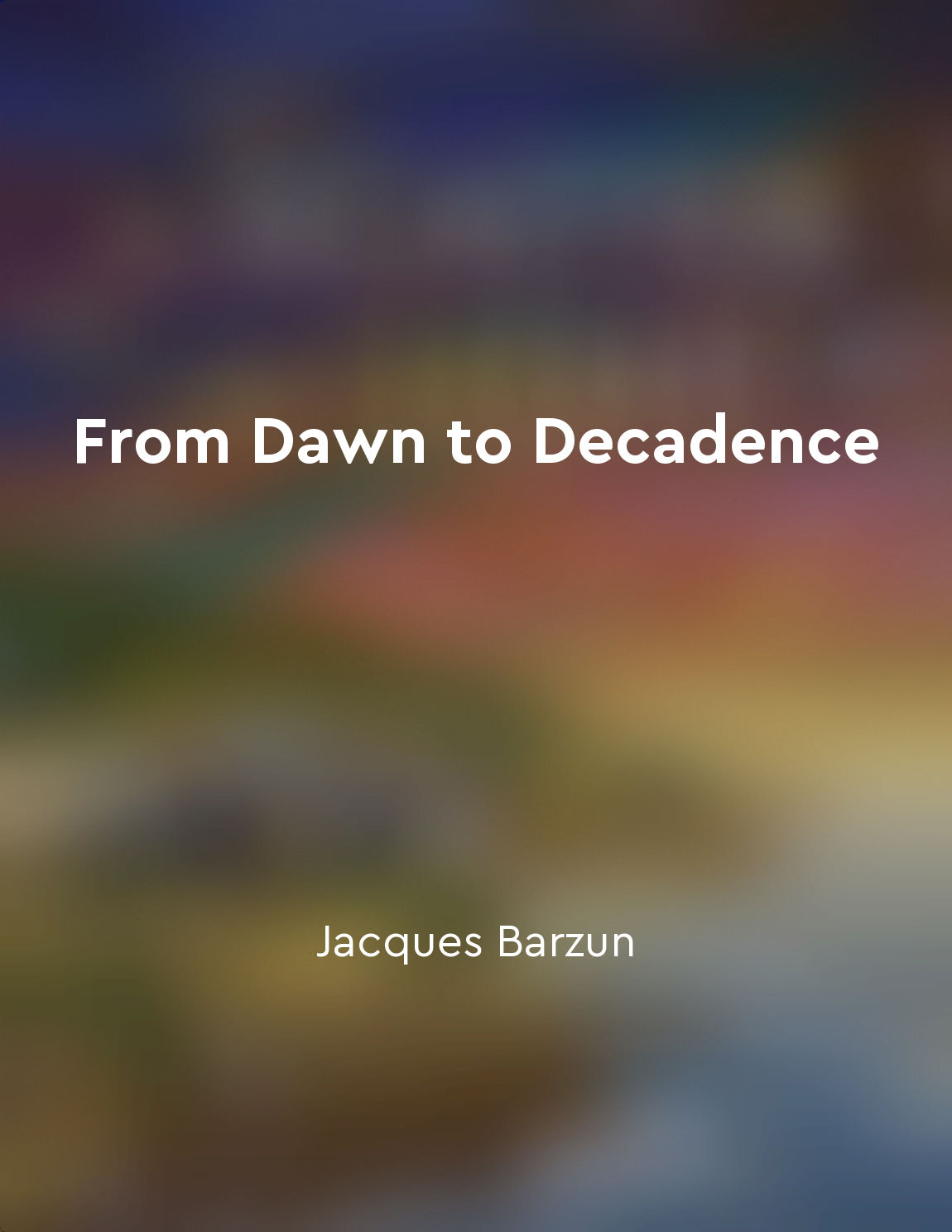Challenges to traditional values from "summary" of From Dawn to Decadence by Jacques Barzun
The erosion of traditional values has been a central feature of modernity. The Enlightenment of the 18th century challenged the authority of traditional institutions such as the church and monarchy. The rise of individualism and rationalism undermined the hierarchical order that had prevailed for centuries. The French Revolution, with its call for liberty, equality, and fraternity, further shook the foundations of traditional society. The industrial revolution brought about profound changes in the economy and society. Urbanization and the growth of the middle class challenged traditional social structures based on landownership and feudal privilege. The rise of capitalism and the market economy further eroded traditional values of community and solidarity. The Romantic movement of the 19th century celebrated emotion and imagination over reason and logic. Romanticism challenged the Enlightenment belief in progress and rationality, emphasizing instead the importance of individual experience and subjective truth. The Romantics rejected the idea of a universal human nature in favor of the uniqueness of the individual. The rise of nationalism in the 19th century challenged traditional loyalties based on religion and dynastic ties. Nationalism promoted the idea of a common identity based on language, culture, and history. This new sense of collective identity undermined traditional notions of authority and hierarchy. The 20th century saw further challenges to traditional values with the rise of mass politics and mass media. Totalitarian regimes in Europe and Asia sought to create a new order based on ideology and propaganda, rejecting the old values of liberalism and democracy. The horrors of World War II and the Holocaust shook the belief in human progress and reason, leading to a sense of disillusionment and nihilism.- The concept of challenges to traditional values has been a central theme in the history of modernity. From the Enlightenment to the present day, the erosion of traditional institutions and beliefs has been a defining feature of the modern world. The rise of individualism, rationalism, capitalism, nationalism, and mass politics has transformed society in profound ways, leading to a sense of dislocation and uncertainty.


